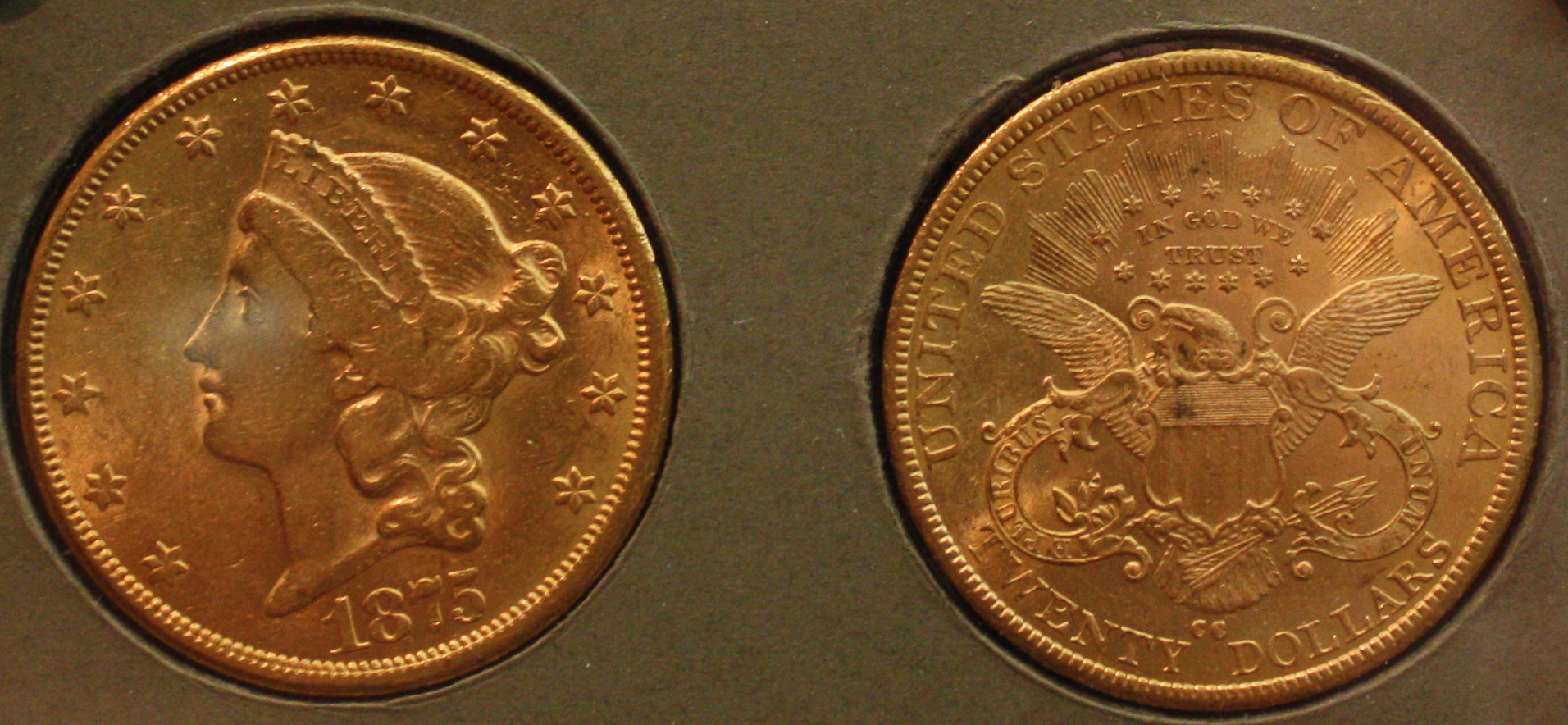Hard money (policy) on:
[Wikipedia]
[Google]
[Amazon]

 Hard money policies support a specie standard, usually
Hard money policies support a specie standard, usually
''How Gold Coins Circulated in 19th Century America'' David Ginsburg
* Monetary policy {{Macroeconomics-stub

 Hard money policies support a specie standard, usually
Hard money policies support a specie standard, usually gold
Gold is a chemical element with the symbol Au (from la, aurum) and atomic number 79. This makes it one of the higher atomic number elements that occur naturally. It is a bright, slightly orange-yellow, dense, soft, malleable, and ductile me ...
or silver
Silver is a chemical element with the symbol Ag (from the Latin ', derived from the Proto-Indo-European ''h₂erǵ'': "shiny" or "white") and atomic number 47. A soft, white, lustrous transition metal, it exhibits the highest electrical ...
, typically implemented with representative money
Representative money or receipt money is any medium of exchange, printed or digital, that represents something of Value (economics), value, but has little or no value of its own (intrinsic value). Unlike some forms of fiat money (which may have n ...
.
In 1836, when President Andrew Jackson
Andrew Jackson (March 15, 1767 – June 8, 1845) was an American lawyer, planter, general, and statesman who served as the seventh president of the United States from 1829 to 1837. Before being elected to the presidency, he gained fame as ...
's veto of the recharter of the Second Bank of the United States
The Second Bank of the United States was the second federally authorized Hamiltonian national bank in the United States. Located in Philadelphia, Pennsylvania, the bank was chartered from February 1816 to January 1836.. The Bank's formal name, ...
took effect, he issued the Specie Circular
The Specie Circular is a United States presidential executive order issued by President Andrew Jackson in 1836 pursuant to the Coinage Act. It required payment for government land to be in gold and silver.
History
The Specie Circular was a rea ...
, an executive order
In the United States, an executive order is a directive by the president of the United States that manages operations of the federal government. The legal or constitutional basis for executive orders has multiple sources. Article Two of t ...
that all public lands had to be purchased with hard money.
Bentonian currency
In the US, hard money is sometimes referred to as Bentonian, after Senator Thomas Hart Benton, who was an advocate for the hard money policies ofAndrew Jackson
Andrew Jackson (March 15, 1767 – June 8, 1845) was an American lawyer, planter, general, and statesman who served as the seventh president of the United States from 1829 to 1837. Before being elected to the presidency, he gained fame as ...
. In Benton's view, fiat currency favored rich urban Easterners at the expense of the small farmers and tradespeople of the West. He proposed a law requiring payment for federal land in hard currency only, which was defeated in Congress but later enshrined in an executive order, the Specie Circular
The Specie Circular is a United States presidential executive order issued by President Andrew Jackson in 1836 pursuant to the Coinage Act. It required payment for government land to be in gold and silver.
History
The Specie Circular was a rea ...
.
See also
*Gold standard
A gold standard is a monetary system in which the standard economic unit of account is based on a fixed quantity of gold. The gold standard was the basis for the international monetary system from the 1870s to the early 1920s, and from the l ...
* Silver standard
The silver standard is a monetary system in which the standard economic unit of account is a fixed weight of silver. Silver was far more widespread than gold as the monetary standard worldwide, from the Sumerians 3000 BC until 1873. Following ...
* Bimetallic standard
* Bullion coin
Bullion is non-ferrous metal that has been refined to a high standard of elemental purity. The term is ordinarily applied to bulk metal used in the production of coins and especially to precious metals such as gold and silver. It comes fro ...
* Digital gold currency
Digital gold currency (or DGC) is a form of electronic money (or digital currency) based on mass units of gold. It is a kind of representative money, like a US paper gold certificate at the time (from 1873 to 1933) that these were exchangeable ...
* Fractional reserve banking
* Free banking
* Hard money (disambiguation)
* Libertarianism
* Bitcoin
References
Further reading
''How Gold Coins Circulated in 19th Century America'' David Ginsburg
* Monetary policy {{Macroeconomics-stub